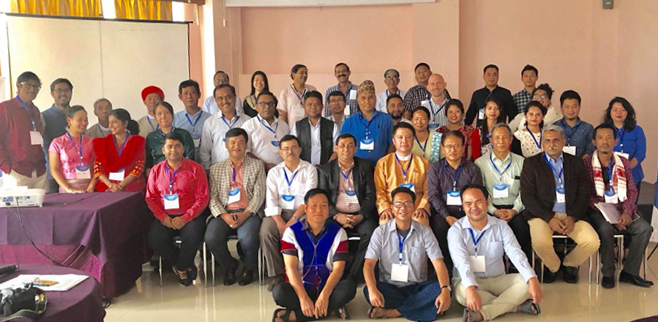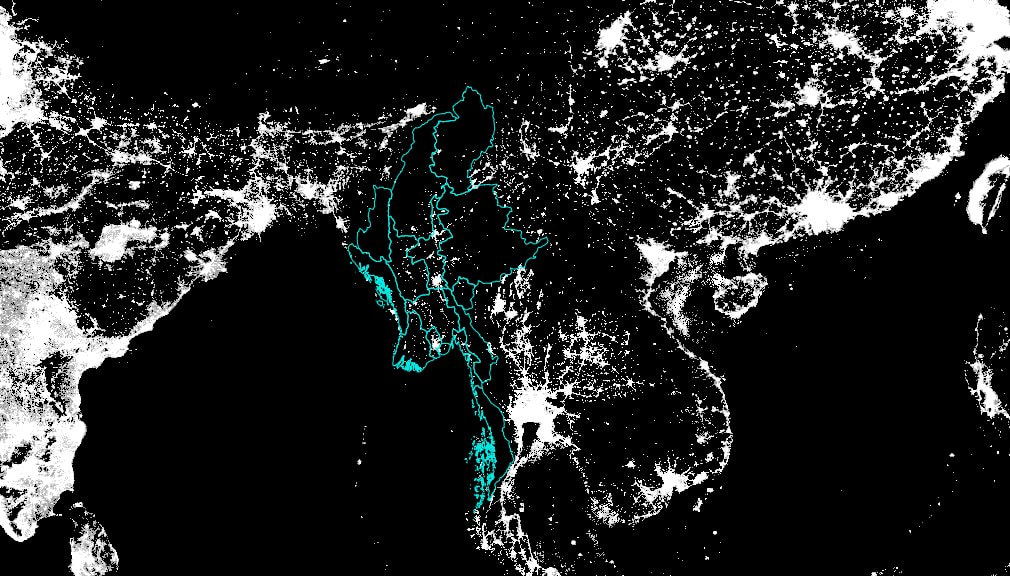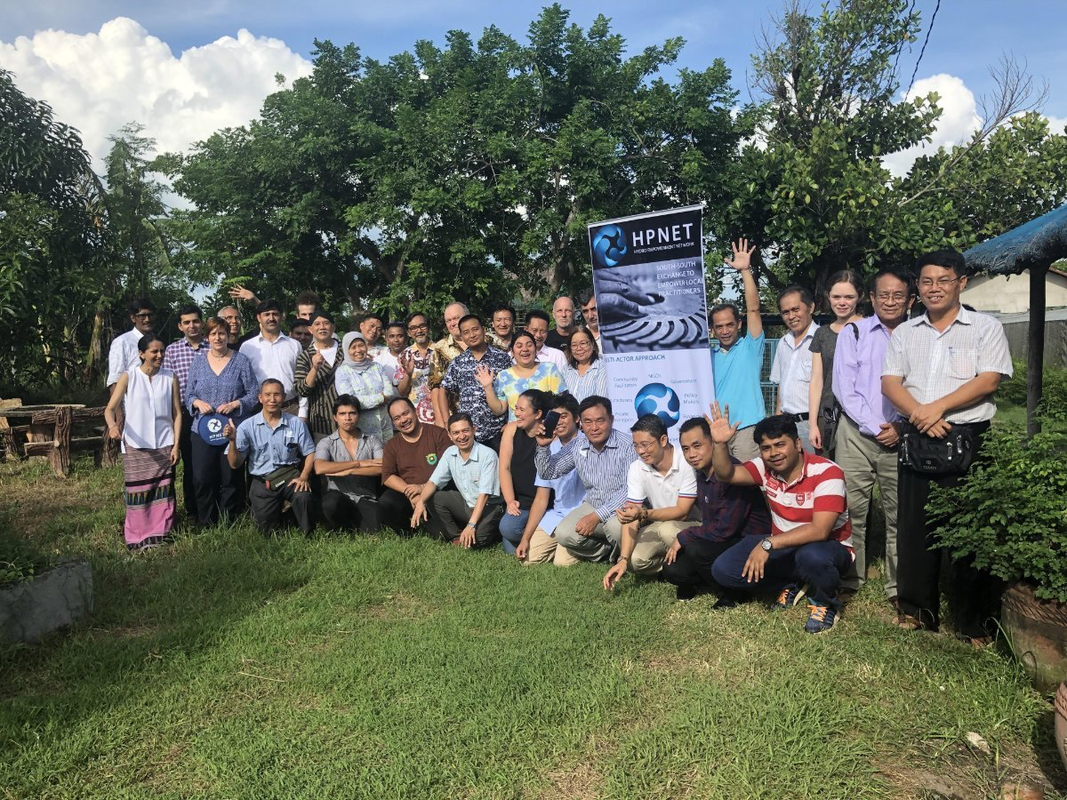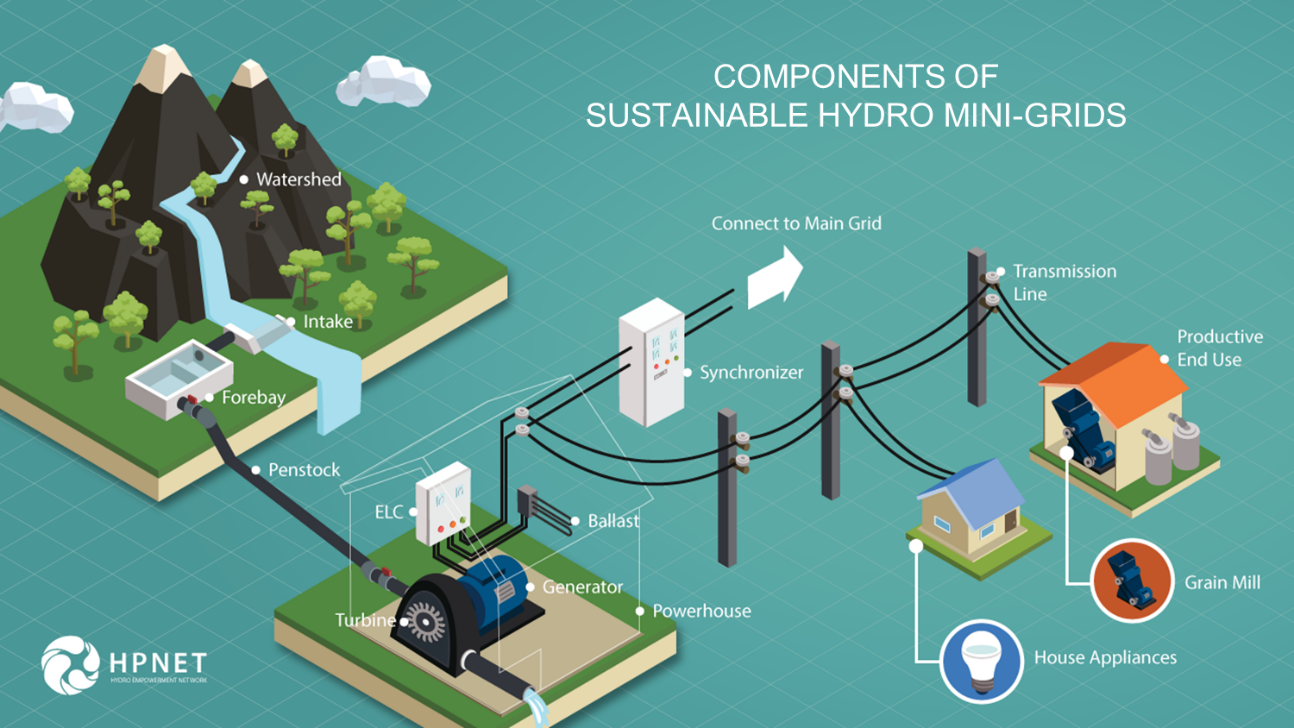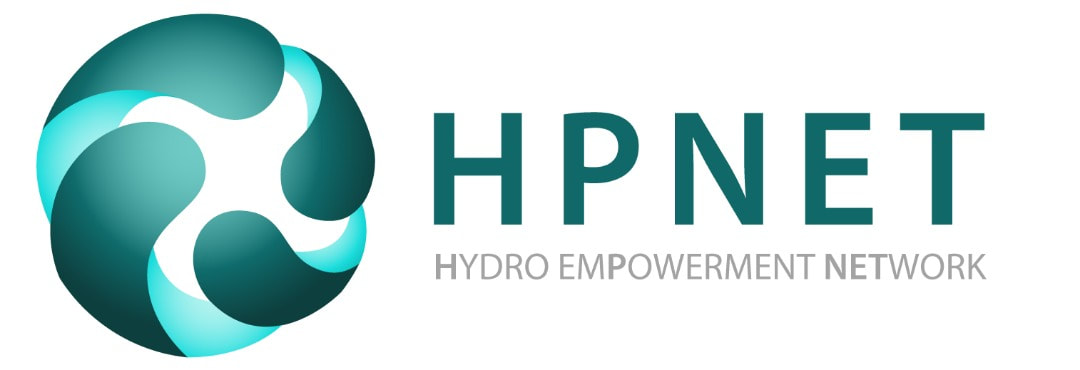The event resulted in increased awareness among front-line civil society organizations and development partners in India, Myanmar, and Nepal; utility actors from India and Nepal; and government officials from India, Myanmar, and Nepal. The awareness has resulted in stronger momentum at the country level for multi-actors to work closer together in bringing practice-to-policy changes that have tangible benefits for marginalized rural communities.
|
Our country-specific strategic advocacy efforts were merged into regional momentum this month, thanks to International Rivers and its partners taking the lead in organizing a multi-actor regional exchange, Advancing Community-scale Hydro: Bridging India, Myanmar, and Nepal. The event, held in Shillong, India, focused on policy, enterprise, and institutional challenges, opportunities, and best practices. HPNET Board members from the three countries were critical in the participant selection, agenda design, and presentation content. The event resulted in increased awareness among front-line civil society organizations and development partners in India, Myanmar, and Nepal; utility actors from India and Nepal; and government officials from India, Myanmar, and Nepal. The awareness has resulted in stronger momentum at the country level for multi-actors to work closer together in bringing practice-to-policy changes that have tangible benefits for marginalized rural communities. The event was informed by the video below, developed by the local association Hydropower for Community Empowerment in Myanmar (HyCEM), with support from the Global Greengrants Fund, International Rivers, Mekong Energy and Ecology Network (MEENet), Green Rights Organization, and HPNET.
0 Comments
Join our webinar next week on mini-grid financing solutions! MINI-GRID FINANCING: ENABLING THE ROLE OF LOCAL BANKS DATE: FRIDAY, JUNE 28, 2019 TIME: 9AM EDT / 3PM CEST / 6:30 PM IST REGISTER HERE Renewable energy mini-grids are a proven and cost-effective solution for sustainable energy access. To date, scaled replication of mini-grids has largely depended on international development aid, most commonly as concessionary loans or grants to national government, which are then distributed as grants or subsidies to beneficiary communities. However, in the case of hydro mini-grids access to credit can play a significant role in accelerating mini-grid implementation. Where resources exist, small-scale hydropower produces the lowest cost energy. Its techno-economic characteristics (e.g. lower levelized cost of energy, per kilowatt investment cost, and no need for energy storage) allow for economic viability with high social impact, including affordable tariffs, extensive productive end use, and viable grid interconnection. Because its hardware can be manufactured locally and maintained by local actors, micro and mini hydropower development imparts local skills, jobs and enterprise development. It also strengthens catchment areas and watershed protection, which in turn increases climate resilience and integrated development of rural communities. While these financial viability and socio-economic impact aspects of hydro mini-grids make them conducive to soft loans, impact investment and other types of debt/equity, access to financing is a severe challenge for local, small-scale hydro practitioners across the global south. International financiers find it difficult to lend to projects located in very remote areas, which is often the case with local micro and mini hydropower. Therefore, local practitioners increasingly seek financing from local banks and other local financiers, who tend to be more accessible to local practitioners and amenable for dialogue that helps to clarify the local context and risks. Local banks that lend to rural areas can particularly be more open to lending to mini-grids for energy access. However, in most cases local banks have little or no experience in lending to mini-grids. They lack basic skills for project appraisal and servicing loans. In addition, most countries lack banking regulations that would allow the loan tenures required for mini-grid pay-back periods, e.g. 7-10 years. Collateral and interest rates are also critical obstacles for enabling local bank financing. In some cases local banks do not have adequate capital funds for lending. On the other hand, local developers also need skills building in developing the required documentation and data required to access local bank loans. In spite of these challenges, experience in South and Southeast Asia shows that local banks can be empowered to play a critical role in accelerating sustainable hydro mini-grids by lending to local practitioners. This webinar – the 2nd in a series of four webinars – will feature banks and financing specialists from South and Southeast Asia who have enabled local banks and local developers in the region to make financing available for small-scale hydro mini-grids. Using specific examples, speakers will present:
Presentations will be followed by a Q/A session open to all participants. Learn more about our 2019 Mini-Grid Webinar Series, hosted by WISIONS and energypedia here! SPEAKERS 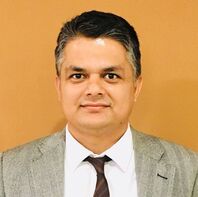 DINESH DULAL NMB Bank Ltd. Mr. Dinesh Dulal has completed Master’s Degree in Management and Bachelor’s Degree in Law. He has spent almost 18 years in banking sector, out of which he has spent more than 10 years in renewable energy financing. Currently, he is the Department Head of Energy and Development Organization Department at NMB Bank Ltd., Kathmandu, Nepal. He has played an instrumental role in renewable energy financing including micro hydro project financing.  KAPILA SUBASINGHE DFCC Bank PLC Mr Kapila Subasinghe is Vice President (Specialized Project Lending)/Head of Consulting, DFCC Bank and former Project Director of the World Bank and Global Environment Facility funded Renewable Energy for Rural Economic Development (RERED) Project of the Government of Sri Lanka. Mr Subasinghe has 25 years of experience in project management and lending. At DFCC Bank he has served both in SME and Corporate sectors, specializing in project financing including lending to off-grid and grid-connected renewable energy sectors. Further he has served in the Project Management Department managing national level credit lines to Sri Lanka from multilateral agencies. At present he serves as Manager, Project Implementation Unit of the ADB funded Rooftop Solar Power Generation Project of the Government of Sri Lanka. He has been a resource person to many local and international renewable energy forums, including for delegations to Sri Lanka from Asia and Africa to study the Sri Lankan renewable energy model. Mr Subasinghe holds a degree in civil engineering from University of Moratuwa, Sri Lanka and is a Fellow Member of the Chartered Institute of Management Accountants, UK.  MARGARITA MANZO Ms. Margarita Manzo is an energy finance specialist and has a background in both early-stage financing as well as corporate and project finance for utility scale projects in Southeast Asia, East Africa, and Sri Lanka. Having worked at an impact fund, an investment bank, a large developer, and a start-up, she has seen the various issues companies and projects face to get funded. She is driven by a passion for getting projects off the ground and would like to see great startups focus less on fundraising and focus more on execution. She is currently developing a data-driven platform to connect investment-ready early stage energy companies with potential funders. Margarita was most recently the Senior Investment Manager at Nexus for Development, where she managed Nexus’s portfolio of funds dedicated to supporting Asian energy, water, and sanitation enterprises serving underserved populations. She continues to serves as a consultant to the Nexus team. Margarita holds an MBA degree and an Energy & Finance Certificate from HEC Paris and a Bachelor’s Degree in Management Engineering from Ateneo de Manila University. MODERATOR  RANISHA BASNET energypedia Ranisha has more than 5 years of experience in knowledge management in the off-grid sector. She has worked with many national and international organizations to develop different knowledge products (webinars, database and knowledge portals) and also designed campaigns to raise awareness about the trending off-grid energy topics. Currently, she is writing her master thesis on “ Gender and Renewable Energy Mini Grids” and is attending the master program, Renewable Energy Engineering and Management at the University of Freiburg, Germany. The Asia Clean Energy Forum (ACEF), organized by the Asian Development Bank (ADB) and its partners, this year included a commendable focus community-based renewable energy solutions. The Energy for All initiative at the ADB organized a deep dive workshop called Community Energy Systems: Realizing the Potential of People’s Partnership in Achieving Energy Access. Several HPNET members and partners were speakers in the two panels of the deep dive. Here's some re-cap from @DivyamNagpal's tweets on his session: "General agreement on the strong track record of community energy systems for energy access, with potential for even greater contribution to universal EA efforts. Important to understand the community ownership process and invest in not just hardware, but the social processes." "A strong business case for distribution utilities to support and integrate community energy systems, while retaining com. ownership (thru on-grid net metering). Pilots in the Philippines show the benefits to reach un/under-served areas & improve tail-end supply." "Emphasis on the imp. role of with local entities/NGOs, pre-emptively addressing the 'common action problem' through project design, providing incentives for productive use development, transitioning from grants -> debt, not pushing specific tech but look at community needs." HPNET-WISIONS DEEP DIVE AT THE ASIA CLEAN ENERGY FORUM: SCALING INCLUSIVE ENTERPRISE MICRO HYDRO6/19/2019 HPNET and WISIONS hosted a Deep Dive Workshop at the Asian Development Bank (ADB) Asia Clean Energy Forum (ACEF) 2019, entitled Hydro Mini-Grids in the Asia-Pacific: Scaling Inclusive Enterprise-Based Approaches. Special thanks to the ACEF team, our speakers, and WISIONS for making the rich dialogue possible! The agenda and speaker bios can be found here. Watch the videos below! Or listen to the audio here. Part 1 - Examples and Opportunities for Enterprise-based Hydro Mini-Grids Moderator: Divyam Nagpal Panelists: Bir Bahadur Ghale, Hydro Concern Ltd., Nepal; Satish Gautam, UNDP Renewable Energy for Rural Livelihoods, Nepal; Sandra Winarsa, Hivos Southeast Asia; Meherban Khan, Aga Khan Rural Support Programme (AKRSP) Pakistan, and Dipti Vaghela, Hydro Empowerment Network Part 2 - National Programs to Scale-up Enterprise-based Approaches Moderator: Bikash Pandey, Winrock International Panelists: Ernesto 'Butch' Silvano, National Energy Administration, Philippines; Trimumpuni, IBEKA, Indonesia, Senator Adrian Banie Lasimbang, Borneo; Sherzad Ali Khan, Aga Khan Development Network (AKDN); U Aung Myint, Renewable Energy Association of Myanmar (REAM) Six years ago, a small group of avid, local micro hydro practitioners came together, realizing a shared vision for sustainable, community-centric hydro mini-grids.
Soon after, with mentorship and funding from WISIONS, we launched the Hydro Empowerment Network (HPNET) — a multi-actor knowledge exchange platform that advances policy, access to financing, technology localization, socio-environment and social enterprise solutions for sustainable micro/mini hydro. Today, we are nearly 200 members and collaborators from across the globe. This week we held our 49th and 50th outcome-aimed knowledge exchange activities! We brought together 55 practitioners from 10 countries to take part in HPNET’s next phase of work and engage at the Asia Clean Energy Forum (ACEF) 2019, including our Deep Dive Workshop, “Hydro Mini-Grids in the Asia Pacific: Scaling Inclusive Enterprise-based Approaches.” Many thanks to our members, our Board, our thematic advisors, our facilitators, our volunteers, the Secretariat team, the ACEF 2019 team, SIBAT Mangarita Organic Farm, Yamog, GIZ Myanmar and the Wuppertal Institute for Climate, Environment and Energy for making this incredible week possible — to further empower the work of homegrown, indigenous practitioners of small-scale hydropower. Read more about our 4th Gathering of Practitioners here! |
Categories
All
Archives
February 2023
|
